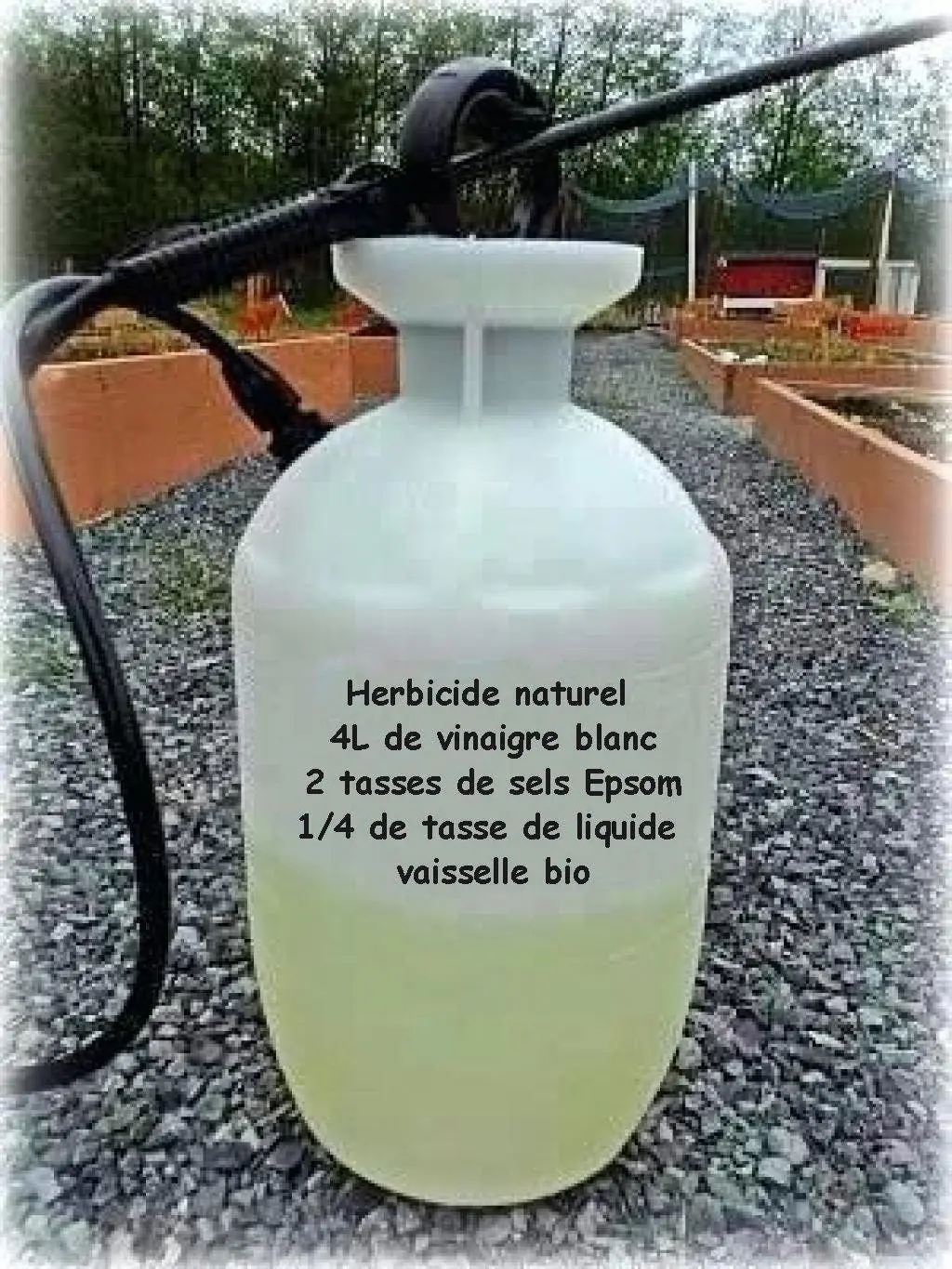
To deal with weed problems that invade gardens and flower beds, many of us turn to chemical products available in supermarkets.
However, these herbicides present many dangers, whether for humans, animals or the environment in general. To preserve your health and that of yours, here is a 100% organic herbicide, very easy to prepare.
Weeds are a real daily nuisance, especially when they destroy hours of hard work in the garden! Lawns, gardens and paths, they become embedded everywhere and can become a real pest.
Therefore, it is normal to want to get rid of it effectively. However, our tendency to instinctively use chemical herbicides is a very negative reflection on our health and the environment. We explain…
Glyphosate: the killer herbicide:
Many chemical herbicides contain glyphosate, a very controversial product. Our colleagues at The Guardian are investigating this scourge that is causing increasing concern on a global scale.
In an article written by Erin Brokovich in person, an activist in the environment of the most redouted American companies, this ingredient will be used in more than 750 products, the herbicide Roundup is not used, the product is part of the company Monsanto and the herbicide is most used. around the world.
In fact, it would have caused cancer of the lymphatic system in Dewayne Johnson, a gardener by profession, who was working at the time for the pesticide company. After a long and aggressive trial, Monsanto was found guilty and had to pay the staggering sum of €250 million to this man whose days are now numbered.
Furthermore, the newspaper Le Monde is also interested in this debate. In fact, glyphosate would be the favorite product of French farmers:
“This product is the first herbicide used by amateur gardeners, who number around 17 million in France. In total, each year 2,000 tons of this substance are consumed by individuals and 8,500 tons by farmers and other professionals.
Monsanto-Bayer: controversial issue:
It is now an all-out battle that this American giant, a subsidiary of the German company Bayer since 2018, is waging with non-governmental organizations to defend glyphosate. France has not escaped this, in fact, Emmanuel Macron had declared that he wanted to completely ban this product in the territory by 2020: “I have asked the government to take the necessary measures so that the use of glyphosate is banned in France as soon as may be possible”. alternatives have been found.” But as LCI explains , its project will end up being rejected in May 2018 by the National Assembly.
In the midst of rebuilding its image, Monsanto-Bayer, now called just Bayer, is already the subject of complaints this time from the Aisne beekeepers.
Our colleagues at Libératio n tell this story where glyphosate was found in honey distributed by Michaud Beekeepers Family, the largest honey seller in France.
The controversy surrounding this ingredient identified as “probably carcinogenic” by the International Agency for Research on Cancer is far from over.
In fact, opinions are multiplying about the rate and duration of exposure necessary before the harmful effects of glyphosate appear. Faced with an ingredient that generates so much debate, there is nothing better than turning to natural and organic alternatives that are healthy and do not harm the body.
Here is a natural herbicide recipe to prepare at home that will allow you to achieve the expected results.
Ingredients :

– 4L of white vinegar
– 500g (2 cups) of Epsom salts (available in pharmacies or supermarkets)
– 60ml (1/4 cup) of organic dishwashing liquid
Preparation :
Mix all the ingredients in a
spray bottle and spray your mixture on weeds, preferably on sunny days with dry weather. In fact, this product should be used when there is no risk of rain.
Why is this mixture effective?
As SFGATE , the San Francisco Chronicle’s flagship site, explains, the kitchen is a resource-rich place to make your own weed killer. In fact, the acetic acid in the vinegar and Epsom salt dries out weeds, while the dishwashing liquid allows the mixture to stick to the plants.
Warnings:
This herbicide works on everything it touches, so be careful not to spray any plants you want to keep in your garden!